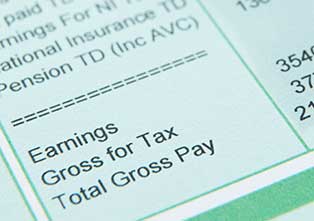What Percentage of our Taxes Goes Toward SSDI in Winchester, TN?
June 19th, 2017 by Attorney John Colvin

If you’ve ever looked at your paycheck and wondered why so much of your income is consumed by taxes and other deductions, you’re not alone. But the money taken from your check funds important programs – programs that you may one day rely on to help you cover your expenses.
Aside from federal, state, and local taxes, you may notice a deduction on your check for FICA or OASDI (Federal Insurance Contributions Act, or Old Age, Survivors and Disability Insurance program). It’s up to the employer to determine which acronym – FICA or OASDI – they use on paychecks, but they both mean essentially the same thing: funds that support Social Security and Medicare.
When you’re an employee, and not an independent contractor, your employer must match your FICA or OASDI contributions. The total FICA contribution per employee is 15.3 percent, of which employers pay half. Self-employed people pay their entire FICA contribution, but at a lower rate of 12.4 percent. About 6 percent of the total FICA contribution funds Social Security, and the Medicare contribution is 1.45 percent.
How Benefits Are Distributed
About 77 percent of Social Security payouts are retirement benefits. Social Security Disability Insurance benefits account for 14.3 percent of payouts, and survivor benefits account for 8.8 percent of payouts. (Survivor benefits are those paid out to parents, spouses, widows, or children of deceased workers.)
A Breakdown of SSDI Funding
Using $40,000 as an example salary, here’s what an individual’s total contributions to SSDI would be:
Annual salary – $40,000
Total FICA deduction (15.3 percent, half paid by employer) – $6,120
OASDI portion (6.2 percent of total FICA) – $379.44
Total annual OASDI cost to employee: $189.72
Total estimated annual SSDI cost to employee: $27.13
That total OASDI cost is based on the fact that the employee is footing the bill for roughly half of the contribution. The SSDI cost is 14.3 percent of the OASDI cost (which is the percentage of Social Security benefits paid out for disability), but it’s not an exact figure, because there are some variables unaccounted for.
Social Security is a pooled resource, with some people paying more into it than others. An employee’s individual OASDI contribution is capped at $7,886.40, regardless of income.
Who Receives SSDI Payments?
According to statistics by the SSA, fewer than 4 in every 10 disability applicants are awarded benefits. This is because the criteria used to determine eligibility are very strict. To qualify for SSDI benefits, an applicant must:
- Have been employed for 5 of the last 10 years and at least a quarter of their adult life
- Be insured for disability benefits.
- Be suffering from a severe mental or physical impairment that is medically determinable and is expected to last at least 12 months or result in death.
- Be unable to engage in a substantial gainful activity anywhere in the economy.
If an applicant hasn’t worked long enough, they are technically disqualified by the SSA. The rest of the applicants are sent to disability determination services (DDS) in the state for medical evaluation.
If their application is denied, they have the option of working with a Tennessee Social Security Disability Lawyer to appeal the decision.
Generally, what this means is that the SSA only awards SSDI benefits to candidates it deems eligible.
How Much Social Security Will You Receive?
If you decide to begin receiving social security benefits, the amount you receive will depend on your age, birth year, retirement age, and how much you have paid in FICA taxes. This means that the exact size of your check depends on your tax behavior. Overall, the maximum monthly payout for social security benefits is $2,788 per month or $33,456 per year.
The formula for calculating your possible social security payments can be quite complicated. Rather than wade through endless equations, you can work with a Tennessee SSDI attorney to determine your eligibility and projected benefit amount.
The Take-Home Message
As these calculations illustrate, the amount individuals pay to fund SSDI is very little, considering the ways those benefits literally save people’s lives. In 2017, the average SSDI benefit check is $1,171 per month, and people who have a recent history of higher incomes could receive up to $2,687 per month.
SSDI is a program that helps people with the expenses of daily living, including medical care. Without it, many people might suffer serious financial consequences, like foreclosure and homelessness.
Disclaimer*
The information on this website is for general information purposes only. Nothing on this site should be taken as legal advise for any individual case or situation. This information is not intended to create, and receipt or viewing does not constitute, an attorney-client relationship. No representation is made that the quality of the legal services to be performed is greater than the quality of legal services performed by other lawyers.

